corey powell video game design instructor at the stem academy
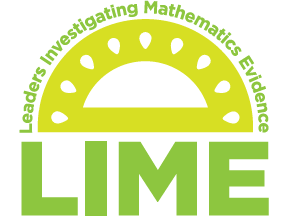
Personnel Preparation in Mathematics Special Education
U.S. Dept. of Education, Office of Special Education Programs (OSEP)
PI: Dr. Sarah Powell (University of Texas, Austin)
Co-PIs: Dr. Leanne Ketterlin Geller (SMU); Dr. Erica Lembke (University of Missouri)
November 2021 - October 2026
The LIME (Leaders Investigating Mathematics Evidence) is a project funded by the Office of Special Education Programs to create the next generation of researchers and leaders with PhDs in special education with a focus on mathematics. It will provide tuition and stipend support, travel to conferences, and research support for twelve scholars for four years of doctoral studies. The program will be hosted at three universities: University of Texas, Austin; Southern Methodist University; and University of Missouri.
Back to Top

Education Talent Search Projects
U.S. Dept. of Education
PI: Dr. Anthony Petrosino, Project LAUNCH, Project LIFT
September 2021 - August 2026
Education Talent Search (ETS) identifies and assists high school students from disadvantaged backgrounds who have the potential to succeed in higher education. ETS program staff provide academic advising, career planning and guidance, and mentoring services to students. The program is designed to support students as they graduate from high school and transition to college. ETS staff also assist students complete financial aid applications and manage the college application process. The program serves a total of 1,000 students annually between two projects (Project LAUNCH & Project LIFT).
Back to Top
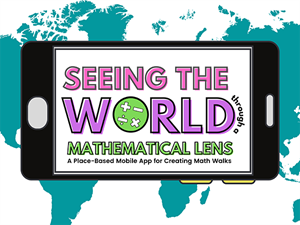
Seeing the World through a Mathematical Lens
National Science Foundation, Advancing Informal STEM Learning
Award Number: DRL 2115393
PI: Dr. Candace Walkington (Southern Methodist University)
Co-Pis: Dr. Anthony Petrosino (SMU), Dr. Koshi Dhingra (WalkSTEM); Dr. Cathy Ringstaff (WestEd), Elizabeth Stringer (SMU)
August 2021 - July 2026
This 5-year project draws on research on informal math learning, problem-posing, and culturally sustaining pedagogies to conduct cycles of participatory design-based research on technology-supported math walks. Dr. Candace Walkington serves as PI and leads the project team that is conducting research on a location-based mobile app for informal mathematics learning. This research takes place at 9 informal learning sites and involves iteratively designing an app (Mathfinder App) in which learners can view and contribute to an interactive map of math walk "stops" at these sites (Dallas Arboretum, Dallas Museum of Art, Dallas Zoo, Frontiers of Flight Museum, the GEMS Camp, the Girl Scouts STEM Center of Excellence, St. Phillips School and Community Center, Twelve Hills Nature Center and Voice of Hope Ministries). Learners will be able to select locations and watch short videos or view pictures with text that describe how mathematical principles are present in their surroundings. For example, learners could use the app to discover how a painting by a local Latino artist uses ratio and scale, or how a ramp in downtown was designed with a specific slope to accommodate wheelchairs. Research studies will also examine the impact of having learners create their own math walk stops at local informal learning sites, uploading pictures, descriptions, and linking audio they narrate, where they make observations about how math appears in their surroundings and pose interesting questions about STEM ideas and connections they wonder about.
Back to Top

Science Teachers' Experiences Learning about African American English
The Spencer Foundation
PI: Dr. Quentin Sedlacek
July 2021 - December 2024
Racial discrimination is illegal in the United States. However, linguistic discrimination is not similarly prohibited, even though some common beliefs about language are deeply rooted in racism. In recent decades, scholarship that critically examines the relationships between language, race, and racism has had transformative effects on language arts education. However, comparatively little work has explored the effects that critical linguistics can have in science education. This study, funded by a grant from the Spencer Foundation, will explore the influence of critical linguistics in science education by investigating the sensemaking of current and prospective K-12 science teachers as they learn about African American English (AAE) in their teacher education coursework. AAE is a well-documented language variety historically associated with African American communities in the United States. Research on AAE has played a central role in the development of sociolinguistics, and many universities now offer courses which assign readings about AAE. These texts sometimes employ strategic essentialism to debunk racist stereotypes and raise awareness of the ways in which language ideologies reproduce systemic racism. However, some scholars have expressed concerns about strategic essentialism; while it may help to foster critical language awareness, it may also inadvertently reinforce problematic beliefs about racial identity. Essentialist beliefs about race are already a topic of considerable concern in science education. It is therefore crucial to understand how science educators make sense of information about AAE in their teacher education coursework. This study will use repeated-measures surveys and interviews to investigate science teachers' sensemaking and racial ideologies. Findings will provide practical and theoretical insights to help science teacher educators reap the benefits of critical linguistics while avoiding the pitfall of reifying essentialist ideologies of race.
Back to Top
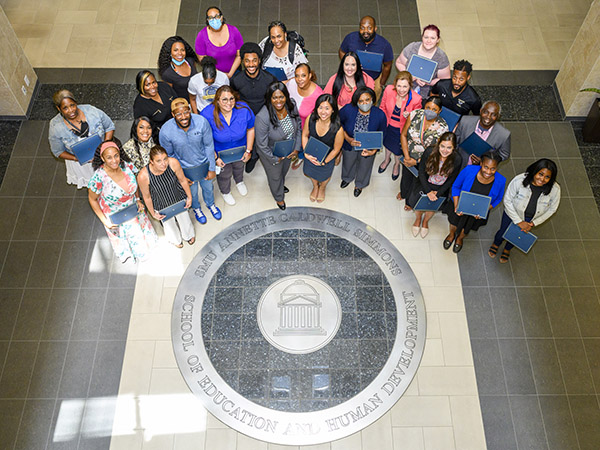
West Dallas STEM School Project, (Phase II)
Toyota Foundation
PI: Dean Stephanie Knight
July 2021 - June 2024
A generous gift from the Toyota USA Foundation has enabled SMU Simmons, Dallas ISD, the West Dallas community, and Toyota to form a partnership to open the West Dallas STEM School. Opened for 7th and 8th grade in August of 2021, the School features inquiry-based, industry-informed STEM curriculum and will have co-located wraparound community services that include extracurricular academic programming and student and family counseling. Pre-Kindergarten through 1st grade will open in 2022 and a new grade will be added each year thereafter, until the School serves pre-K through 8th grade students.
Back to Top

Developing Computational Tools for Model-Based Oral Reading Fluency Assessments
U.S. Department of Education, Institute of Education Sciences (IES)
PI: Dr. Akihito Kamata
Co-PIs: Dr. Cornelis Potgieter (Texas Christian University); Dr. Joseph Nese (University of Oregon); Dr. Yusuf Kara (SMU)
August 2020 - July 2023
The project will develop computational tools (R package and a Shiny app) for estimating sentence, passage, speed, and accuracy parameters for ORF assessment data based on the model-based approach. Ultimately, the project aims that the model-based approach to ORF assessment data developed by the previous and current projects would be widely applied by educational researchers who utilize ORF assessment scores in their research and ORF assessment programs who report ORF scores to teachers, parents and students to improve the validity and reliability of ORF scores for better use of ORF scores in classrooms. The project will also develop web-based tutorials for supporting applied researchers who use the R package and Shiny app.
Back to Top
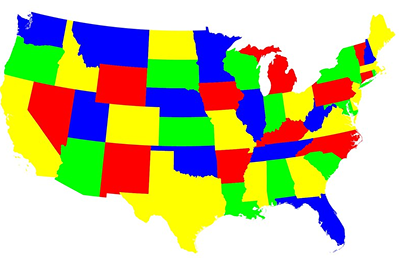
Equity and Effectiveness of State Higher Education Funding Policies
Bill & Melinda Gates Foundation
PI: Dr. Kelly Rosinger (Penn State University)
Co-PIs: Dr. Dominique Baker (SMU), Dr. Justin Ortagus (University of Florida), Dr. Robert Kelchen (Seton Hall University)
August 2020 - July 2022
The grant will support a two-year project that will focus on three main policy issues: how states fund colleges, funding disparities among community colleges, and how states fund students through financial aid. In addition to compiling detailed data from a nearly two-decade period related to those policy issues, the research team will also examine how variations in state funding approaches shape college outcomes, particularly among low-income and racially minoritized students.
Back to Top
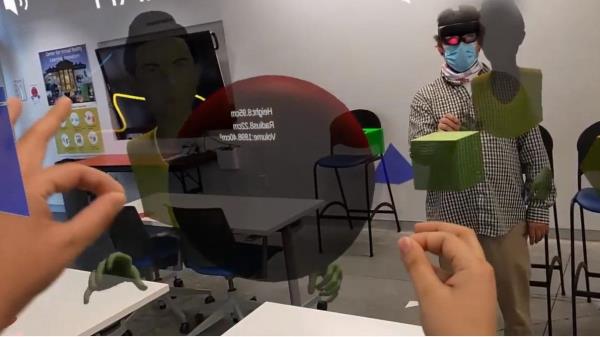
Exploring Collaborative Embodiment for Learning (EXCEL): Understanding Geometry through Multiple Modalities
U.S. Department of Education, Institute of Education Sciences (IES)
PI: Dr. Candace Walkington
August 2020 - July 2024
This project explores collaborative embodiment in the domain of geometric reasoning, leveraging Augmented Reality (AR) technology. AR is a technology that allows the layering of virtual components onto the physical world, such as projecting a three-dimensional hologram of a cylinder atop a real-world desk. Embodiment encompasses the idea that students can learn mathematics using physical motions, gestures, and their perceptions of objects and shapes. Theories of collaborative embodiment, i.e., theories that account for multiple people working together in an embodied way, are needed that take into account the multi-learner nature of mathematics classrooms, and how learners can jointly embody mathematical ideas using different tools and representations. Recent advances in multi-user instructional technology, namely shared holographic AR or shAR, allow for new and important hypotheses about collaborative embodiment to be tested. ShAR is AR technology where multiple learners can view and manipulate the same holograms together at the same time – in our case, holograms of different geometric shapes and solids. We hypothesize that different modalities for math learning (like a hologram, a set of physical manipulatives, a dynamic geometry system (DGS) on a tablet, or a piece of paper) have different affordances, including the degree to which they can represent dynamic transformations, can represent objects and operations in 3 dimensions, can support joint attention, and can provide situational feedback. This project is developing an experimental platform modeled after the Flatland novella, a piece of mathematical fiction from the 1800s about an imaginary world run by geometric shapes, to test our hypotheses. This platform will facilitate data collection from students, situate experimental tasks in an engaging narrative story, and allow for researchers to control key experimental variables. Our overarching research questions are: How do different modalities for collaborative embodiment, particularly shAR, impact student understanding of geometric principles? How are these effects mediated by gesture, language, and actions, and how are they moderated by student and task characteristics? This project is a collaboration between the Department of Teaching and Learning at SMU, the Guildhall at SMU, the Department of Educational Psychology at UW Madison, and a software company GeoGebra who will create the AR geometry environment.
Back to Top

Measuring the English Language Vocabulary Acquisition of Latinx Bilingual Students (Project MELVA-S)
U.S. Department of Education, Institute of Education Sciences (IES)
PI: Dr. Doris Baker (University of Texas, Austin)
Co-PIs: Dr. Akihito Kamata (SMU); Dr. Eric Larson (SMU); Dr. Cara Richards-Tutor (California State University, Long Beach)
August 2020 – July 2024
The purpose of this project is to develop an online formative assessment that measures the science vocabulary knowledge of Latinx bilingual students (LBS) with different levels of English and Spanish language proficiencies. Results from the assessments can be used to progress monitor students, help teachers differentiate language and vocabulary instruction, and provide additional science vocabulary supports within a Response-to-Intervention approach.
This project will produce an online formative assessment system – the Measuring the English Language Vocabulary Acquisition of Latinx Bilingual Students (MELVA-S). The team will produce 24 equivalent alternate forms of MELVA that can be used by teachers to assess their student initial status and growth of vocabulary knowledge and a preliminary report that can be used by teachers to differentiate instruction and provide additional vocabulary and language development support around science topics.
To build the system, the research team will (a) develop assessment content and items; (b) build the interface, the speech recognition system (SRS), and the automated scoring system (AS); (c) develop a psychometric model that accurately estimates vocabulary item parameter and student vocabulary abilities; and (d) carry out three validation studies.
Back to Top

A Comprehensive Measure of Reading Fluency: Uniting and Scaling Accuracy, Rate, and Prosody
U.S. Department of Education, Institute of Education Sciences (IES)
PI: Dr. Joseph Nese (University of Oregon)
Co-PIs: Dr. Akihito Kamata (SMU; PI for subcontract to SMU); Dr. Eric Larson (SMU); Dr. Rhonda Nese (University of Oregon); Dr. Leilani Saez (University of Oregon)
July 2020 – June 2024
This project will develop a tablet application to administer the CORE ORF assessment, by integrating a locally optimized automatic speech recognition (ASR) engine and an automated scoring algorithm by applying a machine learning model to score accuracy, speed, and prosody. This project will develop an automated scoring system to measure, unite, and scale the speed, accuracy, and prosody of ORF for students in grades 2 to 4. Research has shown that prosody explains variance in reading comprehension beyond rate and accuracy; however, current ORF assessments neglect the measurement of prosody. This project can increase the reliability and validity of decisions made from ORF scores, resulting in better identification of students in need of reading interventions, and better evaluation of those interventions.
Back to Top
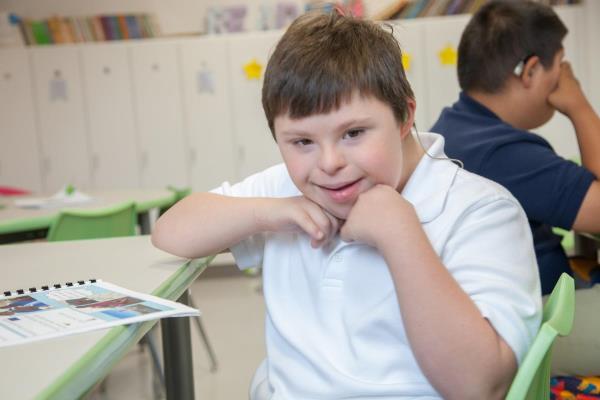
Examining the Efficacy of Friends on the Block: An Intensive Early Literacy Intervention for Elementary Students with Intellectual and Developmental Disability (Project Intensity)
U.S. Department of Education, Institute of Education Sciences (IES)
PI: Dr. Jill Allor
Co-PI: Dr. Stephanie Al Otaiba
July 2020 - June 2025
The purpose of Project Intensity is to conduct a randomized control trial (RCT) in schools in Alabama and Texas to evaluate the initial efficacy of Friends On The Block (www.FriendsOnTheBlock.com) a comprehensive text‐based early literacy intervention written by professors Dr. Jill Allor, Dr. Stephanie Al Otaiba, and Dr. Jennifer Cheatham, to enhance the reading and language outcomes of participating students with intellectual and developmental disabilities (IDD). Specifically, 240 students with IDD will be randomly assigned to a literacy intervention treatment condition (Friends on the Block (FOTB)) or a business‐as‐usual (BAU) control condition. Students in the treatment condition will receive the intervention from Project Teachers across two academic years. In addition to examining treatment effects on reading and language outcomes, we will explore moderators (e.g., IQ, SES) of the treatment. Friends on the Block is a comprehensive early literacy intervention designed to be inclusive and address the specific challenges and strengths of students with IDD; it includes a range of customizable and motivating materials comprised of: (1) a researcher‐developed book series, (2) explicit lessons that provide extensive opportunities for students to integrate skills and apply them in a meaningful context, and (3) multiple learning games to support practice and review. The books include narrative stories about the main character, Sam, and his friends on the block and related expository texts. The FOTB program is flexible and customizable, so teachers can adjust the pacing and instructional activities to meet the needs of various learners, particularly those with intensive needs, such as students with IDD.
Primary Research Questions
1. Do students who participate in FOTB demonstrate greaterreadingoutcomes compared to students who participate in BAU reading instruction?
2. Do students who participate in FOTB demonstrate greaterlanguageoutcomes compared to students who participate in BAU reading instruction?
For any questions please contact Dr. Miriam Ortiz the coordinator for Project Intensity.
Dr. Jill Allor and Dr. Stephanie Al Otaiba acknowledge a financial interest in the Friends on the Block books and curriculum. Any inquiries should be directed to the Office of Research Compliance at Southern Methodist University.
Back to Top
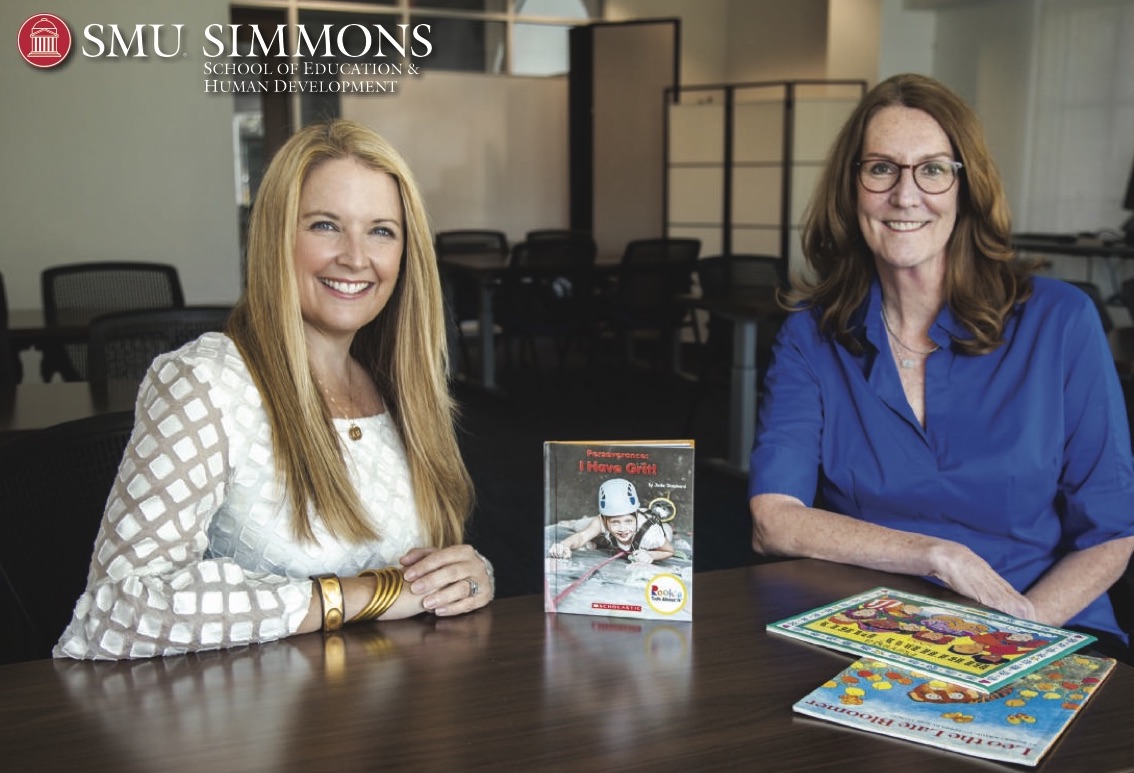
Project GROW: Growing Vocabulary Knowledge to Support Comprehension Development through a Kindergarten Dialogic Read-Aloud Intervention
U.S. Department of Education, Institute of Education Sciences (IES)
PI: Dr. Stephanie Al Otaiba
Co-PI: Dr. Brenna Rivas
July 2020 – June 2024
Simmons faculty members Stephanie Al Otaiba, Ph.D. and Brenna Rivas, Ph.D. received a development grant from the Institute for Education Sciences ($1,399,721). The purpose of the grant is to design a read-aloud intervention to improve kindergartners' social and emotional vocabulary and their listening comprehension. The team will develop and field test 16 book units featuring multi-cultural characters and settings. They plan a mixed methods approach to ascertain the feasibility and promise of the intervention for kindergarteners in low-income schools.
Al Otaiba holds the Patsy and Ray Caldwell Centennial Chair in Teaching and Learning. She and Rivas have collaborated over the past eight years on several projects related to literacy interventions and response to intervention funded by IES and the National Institutes of Health. They are joined by post-doctoral researcher Jennifer Stewart, Ph.D., a recent Simmons graduate, to support the project.
Back to Top

The Noyce Scholars Program, Dallas
National Science Foundation (NSF)
Award #1950246
PI: Dr. Scott Norris (SMU Dedman College)
Co-PIs: Dr. Annie Wilhelm, Dr. Candace Walkington (SMU Simmons School)
July 2020 - June 2025
The Dallas Noyce Scholars Program is a partnership between Southern Methodist University (SMU) and the Dallas College School of Education to create a community-focused pathway for mathematics teacher preparation in the Dallas community. The intent of this program is to allow qualified students with a sincere desire to teach in high-need schools to benefit from an exceptional learning opportunity at SMU with $30,000 in scholarship funding from the National Science Foundation, and possible additional scholarship funding from SMU. While the primary thrust of the grant is scholarship funding, we are simultaneously studying how different features of the program impact teacher preparation and retention.
Back to Top
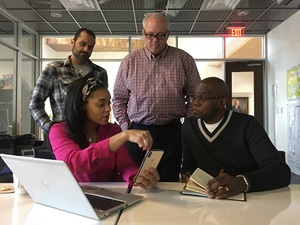
Creating Low-cost Virtual Reality Training to Improve Care during Labor and Delivery
Wellcome Trust
PI: Dr. Richard Sullivan, (King's College London)
SMU PI: Dr. Eric G. Bing; Co-PI: Dr. Anthony Cuevas
February 2020 - January 2022
An international team of researchers from King's College London, Southern Methodist University, University of North Carolina at Chapel Hill, University of Texas Southwestern Medical Center and the University of Zambia is developing techniques to train surgeons using low cost eLearning tools and Virtual Reality which can help improve the acquisition of knowledge and skills without patient contact. Surgery is one of the most crucial domains of global medicine, yet most low- and middle-income countries have stark deficits in both the absolute numbers of surgeons and their level of expertise to perform complex surgical procedures. Of the many types of emergency surgical interventions, some of the most crucial and complex are those required to manage obstetrical hemorrhage, the world's most common cause of maternal death. Funding from the Wellcome Trust will enable researchers to build and field test the first general affordable obstetrical virtual reality simulator training platform for the surgical management of obstetrical hemorrhage. The innovative training platform will integrate the latest advances in virtual reality technology with traditional hands-on training and can be easily and affordably delivered within low and middle-income contexts.
Back to Top

POLYMATH: Polycraft Multi-user Anthropomorphic Testbed for Hybrid Systems
U.S. Department of Defense (DOD)
PI: Dr. Eric Kildebeck (University of Texas at Dallas)
Co-PIs: Dr. Candace Walkington, Dr. Eric Bing, Dr. Anthony Cuevas
November 2019 - May 2023
This grant will examine using Polycraft World – a Minecraft mod - to create geometry puzzles. Puzzles will incorporate spatial reasoning tasks where students or agents arrange and manipulate blocks, fencing, and other objects to solve problems about geometric principles like area, volume, perimeter, reflection, and rotation. Data will be collected where students work cooperatively in teams to solve these puzzles either on a laptop in the digital Polycraft World, or in a live-action, full-sized "arena" where they manipulate actual foam bricks and pieces of fencing to discover problem solutions. Students' actions when solving the tasks will be analyzed and coded, and gestures, speech, and actions on objects will be carefully extracted from video footage. We will also use physiological sensors to continuously detect learner states as they engage in problem solving. Later stages of the grant will involve using videos of learners solving the geometry puzzles to train an artificial intelligence agent to solve the same problems, and then will introduce different kinds of novelty into Polycraft World to disrupt problem-solving processes and foster creative thinking.
Back to Top
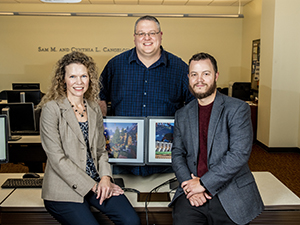
Integrating Human Computer Interaction, Machine Learning, Game Design, and Educational Assessment in a STEM+C Curriculum
National Science Foundation (NSF)
Award #1933848
PI: Dr. Corey Clark
Co-PIs: Dr. Leanne Ketterlin Geller, Dr. Eric Larson
September 2019 - August 2023
National Science Foundation has awarded Corey Clark, Ph.D., Leanne Ketterlin Geller, Ph.D. and Eric Larson, Ph.D. a $1.5 million four year grant to research teaching computer science and computational thinking via Minecraft. Efforts to increase intrinsic interest in math and data science have proven difficult to apply evenly across gender, race, and socio-economic factors. This research project will assist in creating a more stable, ethical, and inclusive data science workforce by broadening the interest in data science to a more diverse population of students. This research spans the fields of game design, human computer interaction, machine learning, curriculum design and educational assessment by integrating essential computer science standards directly into Minecraft. The game and infrastructure produced through this research will serve as a vital computing resource for middle and high school educators that will be sustained beyond the current project.
Back to Top

Validation of the Equity and Access Rubrics for Mathematics Instruction (VEAR-MI)
National Science Foundation (NSF)
PI: Jonee Wilson (NC State)
Co-PIs: Anne Garrison Wilhelm
July 2019 - July 2023
In this four-year project, funded by the National Science Foundation (Award #1908481), we are studying elementary and middle-school mathematics instructional practice to address the challenge of supporting the increasingly diverse population of students to access and equitably participate in rigorous mathematical activity. Over the four years, researchers from North Carolina State University (NC State) and Southern Methodist University (SMU) will be collaborating to validate the EAR-MI, a new measure developed to capture practices aimed to support marginalized students in gaining access and more equitably participating in mathematics classrooms. Though the EAR-MI has great potential to support teacher educators and educational researchers in identifying, evaluating, and supporting the development of these practices, before promoting the use of the EAR-MI, it is important that the EAR-MI be validated to be used in particular ways so that claims and inferences drawn from using it are warranted. The study draws on Kane's (2016) "argument-based approach to validity" in systematically building an argument for the validity of the EAR-MI.
Back to Top

Measuring Success: Lumin Education
Wend Ventures / Lumin Education
PI: Dr. Jan Mallett
Co-PI: Hiba Rahim
February 2019 - December 2021
A grant from Wend Ventures, formerly the Walton Family Foundation, was awarded to SMU Simmons CORE and Teaching and Learning. The project will fund research that will evaluate how the Lumin Education model of starting young, involving parents, and offering Montessori education results in improved academic achievement, emotional well-being, and executive function for its students. The study will build evaluation capacity and provide formative data to Lumin for continuous quality improvement. If possible, Lumin students will be compared to other students in the Dallas area. The goal of the collaboration between Lumin and The Simmons School collaboration is to answer emerging questions about the effects of Montessori education and the Lumin practices of starting young and involving parents. Also, the project will equip Lumin with additional tools and resources related to data collection, usage, and reporting that will serve as proof points to gain additional financial support and to sustain Lumin programming. Jan Mallett, PI, Hiba Rahim, CoPI, Elisa Gallegos, and Harvey Luna represent SMU Simmons on the project.
Back to Top

Collaborative (Strategies): Personalizing Mathematics to Maximize Relevance and Skill for Tomorrow's STEM Workforce
National Science Foundation (NSF)
PI: Candace Walkington
Co-PIs: Dr. Matthew Bernacki (University of North Carolina Chapel Hill)
Dr. Harsha Perera (University of Nevada Las Vegas)
Dr. Neil Heffernan (Worcestor Polytechnic Institute)
August 2018 - July 2022
This project examines how to engage students taking foundational mathematics courses by connecting math to STEM (Science Technology, Engineering, and Mathematics) careers. Using ASSISTments, students will watch videos, read stories, and solve example problems about how the math they are learning connects to careers that interest them, and then will pose and share their own math problems.
Back to Top
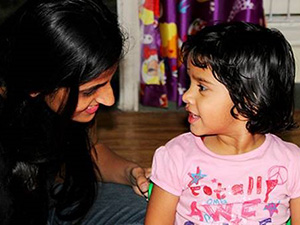
A Research Partnership to Improve the Quality of Pre-K Classroom Practices and Child Outcomes in a Large Urban School District
U.S. Department of Education, Institute of Education Sciences (IES)
PI: Dr. Akihito Kamata
July 2018 - June 2022
The Early Learning Department of the Dallas Independent School District (Dallas ISD) and the Center on Research and Evaluation (CORE) are engaged in A Research Partnership to Improve the Quality of Pre-K Classroom Practices and Child Outcomes in a Large Urban School District. The research partnership focuses on providing high-quality pre-K programs to all children in the Dallas ISD. The purpose of the research partnership is to systematically improve overall pre-K quality through professional development (PD) Dallas ISD provides to instructional specialists (i.e., coaches) and pre-K classroom teachers. The partnership will focus on differentiating PD for teachers based on teacher need, focusing on high-quality teacher-child interactions aligned with the CLASS observation instrument and associated PD system. The partnership will also focus on improving PD for teachers in Instruction Support domain, which remains a particular challenge in pre-K classrooms. The research partnership will focus on all pre-K programs in the district.
Back to Top
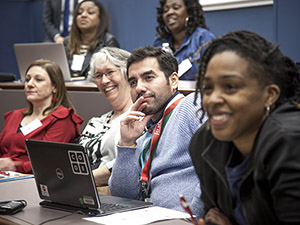
Project STAIR: Supporting Teaching of Algebra: Individualization and Reasoning
U.S. Dept. of Education, Office of Special Education Programs (OSEP)
PI: Dr. Leanne Ketterlin Geller
Co-PIs: Dr. Erica Lembke (University of Missouri),
Dr. Sarah Powell (University of Texas, Austin)
January 2018 - December 2021
The long-term goal of this model demonstration is to contribute empirical evidence on the effectiveness of a system of instructional practices for supporting the algebra-readiness of middle school students with specific learning disabilities in mathematics. Click here for more information.
Back to Top

Understanding How Elementary Teachers Take Up Discussion Practices to Promote Disciplinary Learning and Equity
James S. McDonnel Foundation
PI: Dr. Lynsey Gibbons (University of Delaware)
Co-PI: Dr. Anne Garrison Wilhelm (Southern Methodist University)
Co-PIs: Andrea Bien, Eve Manz, Catherine O'Connor, Beth Warren, Ann Rosebery, Eli Tucker-Raymond (Boston University and TERC)
January 2018 - December 2024
In this 5 year project, we are focused on understanding how elementary teachers use discussion practices in their classrooms, across content areas. In the first phase, we are interested in describing teachers' practice and understanding teachers' decision-making. In the second phase, we will focus on designing learning opportunities for teachers to leverage their existing strengths to improve their discussion practice as they aim to support disciplinary learning and equity.
Back to Top
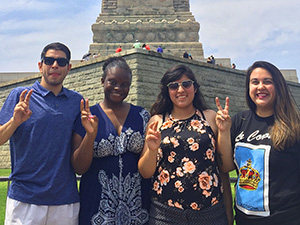
McNair Scholars Project
U.S. Dept. of Education
PI: Dr. David Deggs
October 2017 - September 2022
McNair Scholars Project provides research and other scholarly support to SMU students annually who meet program eligibility criteria. Participants receive academic support services and participate in research and graduate school workshops. Participants also participate in the McNair Summer Research Institute that includes a research methods course and culminates in the execution of an undergraduate research project. The project serves 26 SMU students annually. Two projects (STEM & SOAR) were awarded for the new grant cycle from 2017 to 2022. These two grants serve 124 students primarily in Dallas ISD high schools.
Back to Top
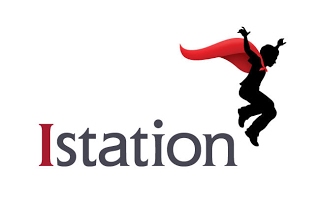
Examining the Validity of Curriculum-based Standardized Learning and Assessment System
Istation
PI: Dean Stephanie Knight
September 2017 - May 2022
This is a 3-year project funded by Istation. This project investigates the validity and other psychometric properties of curriculum-based standardized learning and assessment systems in order to assist their effort on psychometric designs and analyses, such as test design, test equating, item calibration and growth model analysis.
Back to Top
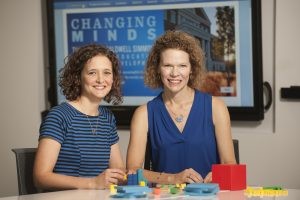
Measuring Early Mathematical Reasoning Skills: Developing Tests of Numeric Relational Reasoning and Spatial Reasoning National Science Foundation
National Science Foundation (NSF)
Award No. 1721100
PI: Dr. Leanne Ketterlin Geller
September 2017 - August 2022
 The primary purpose of the Measuring Early Mathematical Reasoning Skills project, funded by the National Science Foundation, is to develop the Measures of Mathematical Reasoning Skills system comprised of two universal screening tools: Tests of Numeric Relational Reasoning (T-NRR) and Tests of Spatial Reasoning (T-SR). These screeners will measure students' abilities in two foundational and predictive mathematics constructs, numeric relational reasoning and spatial reasoning, in Grades K-2. These screeners will assist teachers in understanding and monitoring their students' numeric relational reasoning and spatial reasoning abilities, leading to informed instructional decisions and curricular interventions.
The primary purpose of the Measuring Early Mathematical Reasoning Skills project, funded by the National Science Foundation, is to develop the Measures of Mathematical Reasoning Skills system comprised of two universal screening tools: Tests of Numeric Relational Reasoning (T-NRR) and Tests of Spatial Reasoning (T-SR). These screeners will measure students' abilities in two foundational and predictive mathematics constructs, numeric relational reasoning and spatial reasoning, in Grades K-2. These screeners will assist teachers in understanding and monitoring their students' numeric relational reasoning and spatial reasoning abilities, leading to informed instructional decisions and curricular interventions.
Back to Top
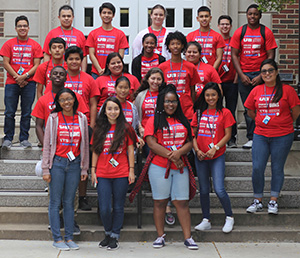
Upward Bound Classic Projects
U.S. Dept. of Education
PI: Dr. Anthony Petrosino
Classic I & III: September 2017 - August 2022
Classic II: June 2017 - May 2022
Upward Bound is a pre-collegiate program that works with students through high school to prepare for college by providing academic support services. Upward Bound support services include high school course tutoring, preparation for SAT and STAAR, high school and initial college course advising, financial aid and scholarship application assistance, and career planning. Three projects (Classic I, II, & III) were awarded for the new grant cycle from 2017 to 2022. These three grants serve 225 students primarily in Dallas ISD high schools.
Back to Top
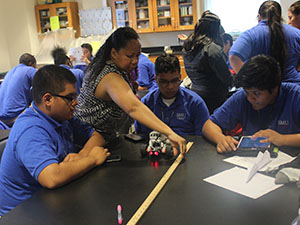
Upward Bound Math Science Projects
U.S. Dept. of Education
PI: Dr. Anthony Petrosino
STEM: September 2017 - August 2022
SOAR: September 2017 - August 2022
Upward Bound Math Science is also a pre-collegiate program that works with students through high school to prepare for college. Upward Bound Math Science services are similar to Upward Bound and are designed to help students recognize and develop their potential to excel in math and science. Students are provided hands-on learning experiences in classes such as engineering, robotics, biomedical sciences, 3-D printing, and information technology. Two projects (STEM & SOAR) were awarded for the new grant cycle from 2017 to 2022. These two grants serve 124 students primarily in Dallas ISD high schools.
Back to Top

Improving Response to Intervention in Students With or At Risk of Reading Disabilities
U.S. Dept of Health and Human Services, National Institutes of Health (NIH) / Vanderbilt University
PI: Dr. Stephanie Al Otaiba
August 2017 - May 2022
The Mindset study, funded by a National Institutes of Health grant, seeks to examine a reading intervention for fourth grade students with reading disabilities that integrates the psychosocial component of mindset with the academic component of reading. Specifically, we will examine the extent to which integrating mindset improves student response to reading intervention.
Back to Top

Comparison of Traditional vs. Virtual Simulation-enhanced Training for Scaling the Cervical Cancer Surgery in Zambia
King's College London / Medical Research Council
PI: Dr. Eric Bing
Co-PI: Dr. Tony Cuevas
April 2017 - Ongoing
The Virtual Reality Surgery Simulator project aims to reduce the time and cost required to train surgeons by using an innovative virtual reality simulation designed to run on off-the-shelf video gaming equipment. The immersive surgery simulator is designed to help trainees acquire the psychomotor skills, sensory acuity, and cognitive planning required to perform complex surgical tasks. When combined with clinical training, this technology has the potential to significantly reduce the time and cost of achieving surgical proficiency in resource-constrained settings. Learn more here.
Back to Top

Project CONNECT: Creating the Ongoing Network Needed to Engage Communities and Teachers
U.S. Dept. of Education, Office of English Language Acquisition (OELA)
PI: Dr. Brenna Rivers
Co-PI: Dr. Paige Ware
September 2016 - August 2022
This $2 million project, funded by the Department of Education's Office of English Language Acquisition (OELA), seeks to increase the number of ESL-certified teachers in the Dallas Independent School District (DISD). Over the next five years, Project CONNECT will prepare 180 pre-service and in-service teachers by offering on-site graduate courses focused on English Learner instruction and family outreach into an area of Dallas called The School Zone (TSZ), an established coalition formed among the School of Education at SMU, the Dallas Independent School District, and 29 non-profit community providers. We will work with families at the community centers, and teachers will create a publicly available website featuring ideas for how to engage with multilingual resources about teaching and family collaboration.
Back to Top
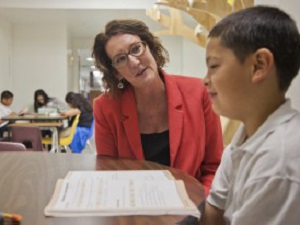
Project FOCUS: Exploring Response to Intervention with a Focus on Students Receiving Tier 3 and Special Education for Reading Disabilities
Southern Methodist University / U.S. Dept. of Education, Institute of Education Sciences (IES)
PI: Dr. Stephanie Al Otaiba
Co-PIs: Dr. Jill Allor, Dr. Paul Yovanoff, Dr. Aki Kamata
July 2016 - June 2022
This project, funded by the Institute of Education Sciences (Goal 1), aims to identify and examine a key set of malleable variables (those that can be changed by the school) that are associated with outcomes for students in Tier 3 or in special education with reading disabilities. The study is being conducted in more than 7 states in collaboration with faculty and doctoral scholars from the National Center for Leadership in Intensive Intervention. The team of SMU-based researchers includes PI Dr. Stephanie Al Otaiba, Co-PIs Dr. Jill Allor, Dr. Paul Yovanoff, and Dr. Aki Kamata, as well as Dr. Brenna Rivas, Dr. Francesca Jones, Dr. Pooja Shivraj, Margaret Pyffer, Dominique Lyons, Damaris Florez, and Miriam Ortiz. Click here for a video describing the project.
Back to Top

Project Motion Capture
University of Wisconsin Madison / The Guildhall at SMU / U.S. Dept. of Education, Institute of Education Sciences (IES)
PI: Dr. Mitchel Nathan (University of Wisconsin Madison)
Co-PIs: Dr. Candace Walkington, Dr. Peter Steiner (University of Wisconsin Madison)
July 2016 - July 2022
This project, funded by the Institute of Education Sciences (Goal 1: Exploration), seeks to create a theory of embodied mathematical cognition for geometry learning. Specifically, this project examines how a Kinect-based video game can direct players to make arm motions that capture key geometric ideas and relations. The game includes a storyline where players encounter a mysterious tribe, and must form specific arm motions, detected by the Kinect camera, and then solve related geometry problems. The theory is that these directed actions will lead students to make their own co-speech dynamic gestures that show geometric transformations and relations. The team of researchers include Dr. Mitchell Nathan from the University of Wisconsin Madison, who is the Principal Investigator (PI) and his Co-PIs, Dr. Candace Walkington at Southern Methodist University and Dr. Peter Steiner at UW.
Back to Top
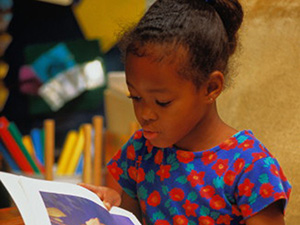
Research, Data Collection and Analysis using the CLASS® Tool
Dallas Independent School District (DISD)
PI: Dr. Annie Wright
Co-PI: Dylan Farmer
September 2015 - Ongoing
DallasISD's Early Learning Department and SMU's Center on Research and Evaluation (CORE) are engaged in a longitudinal research-practice partnership aimed at supporting quality early childhood educational experiences. CLASS observations are conducted by CORE, and rapid feedback of actionable data is allowing the Early Learning Department, instructional specialists and campus leadership to provide targeted coaching to early elementary teachers (PreK to 2nd grade). This ongoing data collection also allows CORE to document how quality is changing semester over semester and year over year and to document the longer-term implications of sustained early childhood quality for student outcomes.
Link: https://www.smu.edu/simmons/Research/CORE/Sustained-Quality-in-Early-Grades
Back to Top
corey powell video game design instructor at the stem academy
Source: https://www.smu.edu/simmons/Research/Projects
Posted by: toddafrourned.blogspot.com

0 Response to "corey powell video game design instructor at the stem academy"
Post a Comment